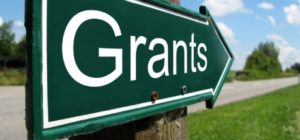Join the DNR and Minnesota Brownfields on Aug. 1, 2018, in La Crosse, for a free, full-day workshop on writing successful EPA grant applications. Get the information you need to know to compete effectively for these funds, and get a head-start on your proposal for the fall grant opportunity.

Wisconsin communities, and the DNR, have been awarded millions of dollars in brownfields grant funds by the EPA over the past decade. It is clearly possible to obtain these dollars, but your grant application package has to be very good to stand out and get funded. Tips and strategies from experts will be shared at this workshop.
New federal legislation, referred to as the BUILD Act, makes changes to several aspects of brownfields law, including more clarity for local governments on how to obtain federal liability protections, and more flexibility in the EPA grant program. Learn about these changes and more.
Who should attend? Local and regional government officials, not-for-profit economic and community development organizations, tribes, and any other entity interested in applying for federal grants to assist with the assessment, cleanup, and redevelopment of under-performing commercial and industrial properties in their community.
More information about the workshop is available HERE, and a link to the registration form is available HERE (button near top-right of web page). We hope you can join us!

